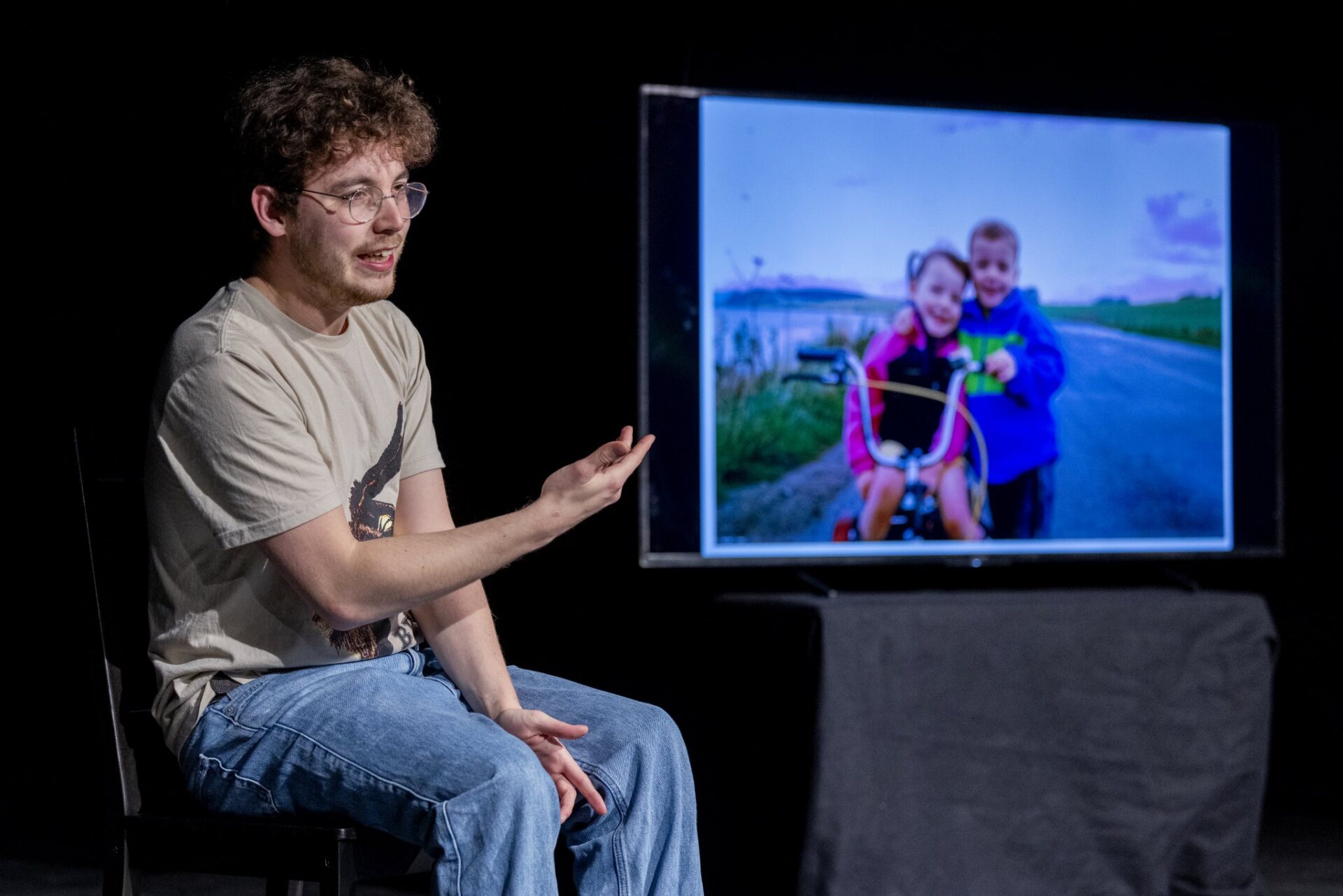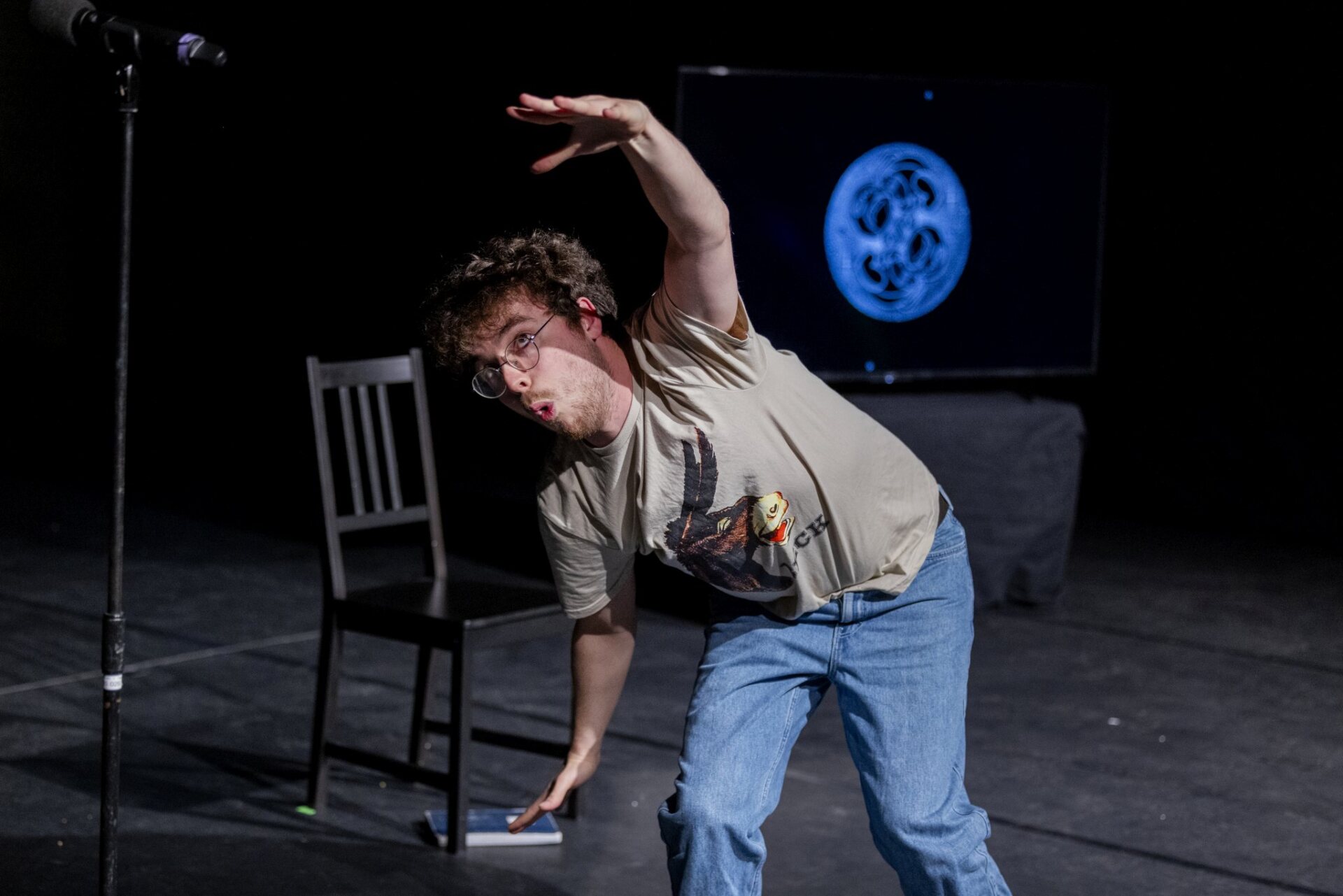Jack Hunte’s “One of Two” is a forceful solo performance that dances between humor, heartbreak and disability justice. Hunter shares with the audience the deep bond with his twin sister Bec, whom he affectionately refers to as his “womb mate”. Hunter presents their autobiographical story of growing up with a disability in a society where differences are marginalised.
Right at the beginning, Hunter explains that this is a not a story intended to inspire. Both he and his twin sister have cerebral palsy. The unequal treatment of the twin siblings and the resulting mental health issues are the main theme of the performance. Furthermore, Hunter highlights the institutional neglect both he and his sister endured and emphasises the various barriers they faced, particularly at school.

The theatricality is captivating. Through the use of multimedia devices (photographs, music and a series of film references), the audience is drawn into the story. Although his twin sister Bec is not physically present, it feels as if she is. Hunter excels not only in sharing Bec’s narration, but also in allowing the audience to hear her voice and her side of the story through audio clips. Hunter’s way of storytelling is outstanding. Whether he’s mimicking his old teachers or speaking in a Darth Vader-like voice, Hunter does it energetically and with great attention to detail. He explains the anecdotes vividly and entertainingly, highlighting the injustices he and Bec faced. Hunter’s use of familiar film clichés underlines the cruel absurdity of some real-life everday struggles.
But behind the humour lies a critique of social failure. Hunter confronts the concept of “cripping up” in the creative industries, as examplified by Eddie Redmayne playing Stephen Hawking, and challenges the audience to think about representation and authenticity. Hunter’s personal memories of his school days are another important part of the play. He shares how he and Bec struggled to be accepted by their peers and how they were subjected to with little support from teachers. He reveals the painful truth about being excluded and not receiving adequate support from seemingly professional school staff. On several occasions throughout the play, Hunter tells us the weather forecast, signifying his emotional state at that moment. As the story progresses and the more injustices he and Bec endure, the stormier and darker the weather becomes. A reflection on his declining mental health due to the inadequate support and living in a system where people with disabilities are constantly undervalued and undermined emphasises the urgent call for change.

Although Hunter and his sister Bec have the same condition, they have different lives. Bec has a type of cerebral palsy that leaves her dependent on her wheelchair. Their different experiences underline the prejudices that prevail in society. Bec’s school career and her abilities were constantly questioned. Hunter’s feelings of guilt are palpable – stemming from the fact that he has kind of escaped with scratches, while Bec bore deeper emotional scars. A testament to his empathy and the weight of trauma shared by the twin siblings is evident.
While “One of Two” criticises social and institutional failures with the honesty they deserve and exposes the injustices the twins have to deal with, it also shines a light on the power of love and family. His remarkable performance makes spectators think, empathise and it calls for urgent systemic change. Ultimately, what makes “One of Two” special for me is the deep love and solidarity between Jack and Bec.